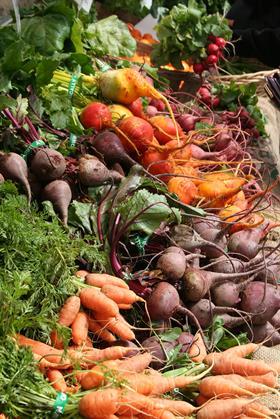
Red tape is often blamed for slowing productivity in horticulture, but perhaps nowhere is it more inhibitive than in the organics sector, which is already a minority sector of the market.
So a recent vote by the EU policymakers to shelve plans that would ban split organic-conventional farms has been welcomed with open arms by the industry.
The new EU organics legislation, an ongoing monster policy that is designed to strengthen regulations, had initially planned to scrap the split farm policy that allows farmers and growers to move gradually from conventional to organic, without making the switch in one move and risking the viability of the business. But following industry feedback that this would put newcomers off and limit the growth of organics in some countries, the European agriculture committee recently voted to shelve the plans. The move is particularly important for the British organics sector – already lagging behind certain European markets, it was feared that banning split farms would put the brakes on any future growth.
Oliver Rubenstein, assistant food policy adviser at the NFU, explains: “What we were most concerned about is the regulation on mixed farms. They initially wanted to tighten it up and get rid of mixed farms altogether – the UK and several other states were in favour of retaining them, whereas other countries wanted a more purist approach.
“We believe mixed farms are the only way the organic sector is going to go – it’s about giving producers the option, that’s what we’re interested in doing. Lots of countries want harder lines, but our organic sector is smaller so we don’t want to limit the growth.”
Rubenstein says the NFU stance is that organic standards should be rigorous, but at the same time they shouldn’t be too difficult or penalise growers who are considering moving into the sector. “Especially in the UK, we’re lagging behind in terms of organic production, but there is definitely demand for it. If the legislation allows for greater flexibility then it will help,” he adds.
There is still work to be done though, and Rubenstein says the NFU would like to see the language “softened” around the mixed farm legislation, as the new regulations suggest there may need to be some separation between crop species.
Although Rubenstein warns that the new mixed farm regulation may be stricter, business development manager at Organic Farmers & Growers (OF&G), Steven Jacobs, believes this may not necessarily be the case. “There may still be some tightening of the rules, but most of our members won’t notice. As long as farmers keep on the right side of their records, and keep crops separated, we don’t envisage any problems,” he says.
“For many producers, converting to organic over time can be the best way for them to maintain the stability of their business while moving to agroecological production methods.”
Jacobs says the new regulation will now resemble the existing regulation in many areas, with some added elements, which he says is in line with OF&G’s view along with European organics trade body IFOAM.
As with any EU policy, implementation is a slow process and stakeholders predict that the new organics legislation won’t come into effect until at least 2017. Indeed, the level of uncertainty around such a slow-moving policy is another concern voiced by trade bodies, who feel that buoyant demand among consumers for organic produce is being held back as growers wait to see how legislation will change. But despite the complexity, it’s well worth engaging with the debate that will shape the organics sector of the future.
Reading between the lines
Other aspects of the new EU legislation that will affect the organics industry include:
Growers may still use hybrid seeds, although it’s not encouraged, says Oliver Rubenstein, food policy adviser at the NFU.
Growers may also use a derogation from non-organic seed if there is an exceptional circumstance or shortage of supply.
Under the new regulations, group certification is classed as a group of producers each with a turnover of less than €20,000 (£14,000) a year, or owning less than five hectares.
Compensation for contaminated organic produce is another area covered by the policy, although the NFU says it is lobbying for greater clarity. Rubenstein says: “We’re not against the principle of compensation but it would be up to the EU to look at how it can be proved. We need a better structure to regulate that. In the past it has all been really messy and there’s been excessive legal action, which is not something we would support.”



